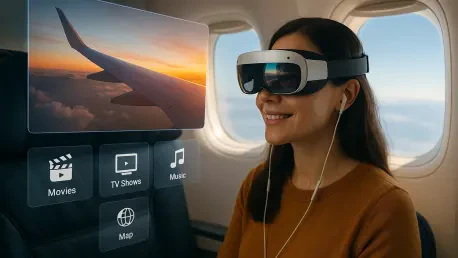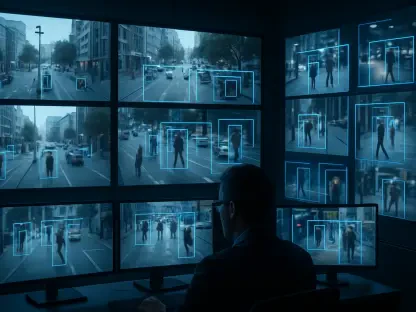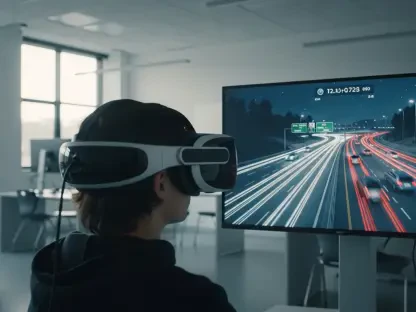In recent years, the aviation industry has been exploring innovative ways to enhance passenger experiences, especially through in-flight entertainment. At the APEX FTE EMEA panel event, industry leaders gathered to discuss the transformative potential of mixed reality technologies, setting the stage for a new era of passenger engagement during flights. This event highlighted vital discussions on leveraging cutting-edge technology to redefine in-flight entertainment and ensure airlines remain competitive.
Immersive Technologies in Aviation: A New Frontier
During the panel, the conversation kicked off with introductions to mixed reality’s potential to revolutionize aviation entertainment. Addressing the importance of innovation in this sector, prominent figures such as Meta Reality Labs’ Kasia Holthouse and MSM.digital’s Camillo Stark shared their insights. They emphasized that engaging entertainment solutions are increasingly essential for airlines striving to meet high passenger expectations. The panel discussions illuminated how mixed reality could enrich the travel experience, laying the groundwork for enhanced passenger satisfaction.
Key Discussions on Mixed Reality Implementation
A significant highlight was Kasia Holthouse’s discussion of Meta’s vision for spatial computing in aviation. She illustrated how combining the metaverse, AI, and sophisticated wearable technology could generate immersive experiences far surpassing traditional in-flight entertainment. The session also shed light on Lufthansa’s pilot program, which integrates Meta’s Quest 3 headsets in business class, a major step toward offering immersive cinematic and gaming experiences onboard. This initiative demonstrates the gradual yet decisive shift toward enriched multimedia content and immersive passenger engagement.
The role of meaningful content repeatedly surfaced during discussions. Camillo Stark stressed the necessity for airlines to invest in creating bespoke content tailored to in-flight experiences. This approach ensures that airlines do not just adopt new hardware but also curate enriching and engaging content that resonates with passengers, reinforcing brand loyalty and connection.
Overcoming Challenges and Strategic Implementations
Discussions further delved into the practical challenges of deploying mixed reality technologies, with experts like Stark acknowledging the logistical complexities involved. The panel advocates for a phased strategy where airlines initially manage headset distribution, eventually transitioning to allowing passengers to bring personal devices. Concurrently, Emirates’ Sebastian Blumenthal emphasized the need for robust connectivity and infrastructure. His insights indicate that a harmonious integration of cutting-edge tech with reliable connectivity will be pivotal for successful implementation.
Beyond entertainment, Dagmar Fischer from TUI proposed novel ways to leverage mixed reality, such as facilitating vacation planning mid-flight. This approach extends the holiday experience to the journey itself, making it more cohesive. Such utility-driven applications highlight the vast potential of mixed reality beyond mere entertainment, promising to enhance entire journey segments.
Pathways Toward a New In-Flight Experience
The APEX FTE EMEA panel underscored a consensus that mixed reality will not replace traditional entertainment but rather augment it, significantly enriching the in-flight experience. Moreover, the discussion explored potential avenues for revenue generation, including partnerships with brands through immersive content. These innovations could redefine how airlines approach branding and passenger engagement strategies.
As the panel concluded, the urgency of adopting mixed reality to sustain competitiveness was emphasized. Holthouse pointed out that the opportunity to leverage these technologies is not a future prospect but an attainable reality. The dialogue at the panel demonstrated the crucial need for airlines to actively participate in technology integration, paving the way for a refined, personalized passenger experience.
In conclusion, the insights from the APEX FTE EMEA panel suggested that the future of in-flight entertainment lies in immediate and strategic integration of mixed reality technologies. Airlines are now challenged to craft engaging and personalized passenger journeys, steering toward a new era of aviation where technology and content meet passenger expectations head-on. This event catalyzed important conversations, equipping industry stakeholders with the necessary foresight and strategies to maneuver the evolving landscape of in-flight entertainment.









